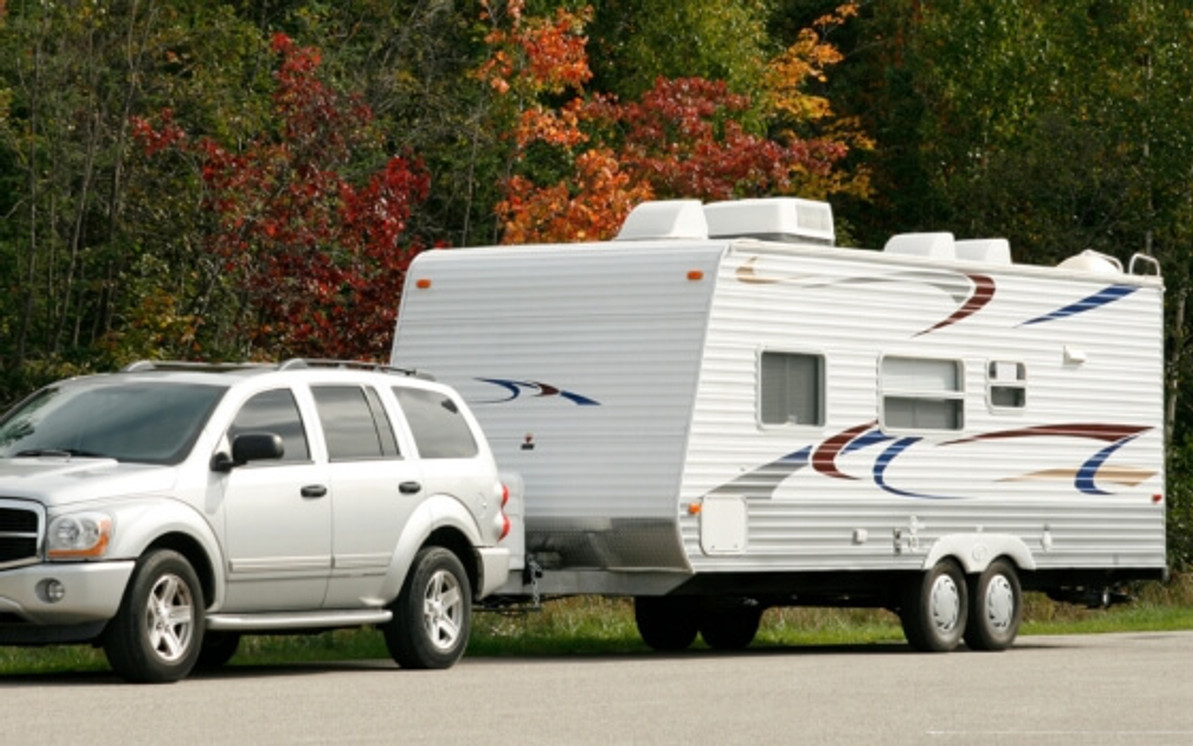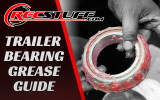How Does A Fender Get Damaged?
Protecting Your Trailer Fenders: A Comprehensive Guide
Trailer fenders are essential components of any towing setup, as they play a pivotal role in safeguarding your trailer and cargo from road debris and potential damage. However, these protective shields are not immune to harm themselves and can fall victim to a variety of issues, both preventable and unpredictable. In this guide, we will delve deeper into the various ways fenders can be damaged and explore the best practices for their maintenance and protection.
Common Causes of Fender Damage
1. Tire Blowouts
One of the most frequent causes of fender damage is tire blowouts while in transit. When a tire blows out, it can not only pose a danger to the vehicle and its occupants but can also result in debris striking the fender. The force of a blowout can be powerful enough to dent or deform the fender, leaving it susceptible to further damage.
2. Improper Usage
Fenders can also be damaged due to improper use. Many trailer fenders are designed to withstand the weight of a person standing on them, but this isn't true for all fenders. Before stepping on a fender, it is essential to verify its weight-bearing capacity. In some cases, fenders may require additional brackets or support to safely bear weight.
3. Road Debris
While fenders are designed to protect your trailer and cargo from road debris, they can ironically become victims of the same road hazards they are meant to shield against. Tire shreds, "road gators," and other debris have the potential to mangle your fender if they are picked up by your tires.
4. Inclement Weather
Harsh weather conditions can also contribute to fender damage. Exposure to rain, snow, or road salt can cause rust and corrosion, weakening the fender's structural integrity. Over time, this can result in cracks, holes, and other forms of damage.
Preventive Measures for Fender Protection
1. Tire Maintenance
The best way to prevent fender damage from tire blowouts is through tire maintenance. Here are some key steps to consider:
- Regularly check your tire pressure and ensure that it matches the manufacturer's recommended PSI (Pounds per Square Inch) rating. Maintaining proper tire pressure not only enhances safety but also reduces the risk of a blowout and consequent fender damage.
- Don't judge the life of a trailer tire solely by the amount of tread left on it. Tread wear is a crucial indicator of tire health, but it's not the only one. Trailer tires should typically be replaced every five years, even if they appear to have sufficient tread.
- Inspect your tires for signs of wear and tear, including cuts, punctures, and bulges. Address any issues promptly to prevent unexpected blowouts.
2. Weight-Bearing Capacity
To avoid damage caused by improper usage, always ensure that your fender can support your weight before stepping on it. Refer to the manufacturer's guidelines and specifications for your specific fender model to determine its maximum weight-bearing capacity. If your fender isn't designed for weight-bearing, consider installing additional brackets or supports where necessary.
3. Clearance and Turning
When pulling a trailer, be extra cautious about making turns and maintaining clearance. Here's what you can do: Make turns wider than usual to ensure the trailer and its fenders clear obstacles and curbs safely. Taking wider turns minimizes the risk of fender damage caused by accidental contact with road features. Properly adjust your mirrors to have an unobstructed view of your trailer. This allows you to make more informed decisions while driving and turning, reducing the chances of inadvertently damaging your fenders.
4. Road Hazard Awareness
To protect your fenders from damage caused by road debris, it's crucial to remain vigilant and stay aware of potential hazards on the road. Some additional tips to consider include: Keep a safe following distance from vehicles, especially trucks and trailers, to reduce the risk of debris being thrown onto your vehicle and fenders. If you notice a "road gator" or any other large debris on the road, avoid running over it if possible. Safely change lanes or reduce your speed to minimize the chances of the debris striking your fenders. Regularly inspect your fenders for damage, no matter how minor it may seem. Small cracks or dents can worsen over time, and early detection can prevent costly repairs down the road.
Fender Material and Durability
The material of your trailer fenders can significantly impact their durability and resistance to damage. Common materials used for trailer fenders include steel, aluminum, and plastic. Each material has its advantages and disadvantages.
1. Steel Fenders
Steel fenders are known for their strength and durability. They can withstand heavy loads and are less likely to dent or deform when exposed to external forces. However, steel fenders are susceptible to rust and corrosion, especially in wet and salty conditions. Regular maintenance, such as painting or applying protective coatings, is necessary to extend their lifespan.
2. Aluminum Fenders
Aluminum fenders are a popular choice for many trailer owners due to their lightweight nature and resistance to corrosion. While aluminum is less prone to rust, it may be more susceptible to dents and dings from impacts. Regular cleaning and occasional maintenance can help keep aluminum fenders in good condition.
3. Plastic Fenders
Plastic or polyethylene fenders are lightweight and highly resistant to corrosion. They are also less likely to dent or deform when compared to steel or aluminum. However, plastic fenders may not be as sturdy and could break or crack upon strong impact. Despite their durability, they require careful use and maintenance. The choice of fender material should align with your specific trailer usage and needs. While steel offers superior durability, aluminum and plastic may be better suited for those seeking corrosion resistance and a lighter weight option.
Extended Maintenance Tips
In addition to the preventive measures mentioned above, here are some extended maintenance tips to help protect your trailer fenders and ensure their longevity:
1. Cleaning and Inspection
Regularly clean your fenders to remove dirt, debris, and road grime. Cleaning not only improves the aesthetics but also allows you to inspect the fenders for any signs of damage. Look for cracks, dents, or rust, and address any issues promptly.
2. Rust Prevention
If your fenders are made of steel, rust prevention is paramount. Apply a rust-resistant paint or coating to the fenders to protect them from corrosion. Regularly inspect the paint or coating for any signs of wear and reapply as needed.
3. Lubrication
If your trailer has fender brackets or supports, make sure to keep them well-lubricated. This prevents squeaking and friction, which can lead to wear and tear on the fender supports.
4. Fender Replacement
If your fenders have sustained significant damage that compromises their functionality, consider replacing them. Replacing a damaged fender is not only essential for safety but also maintains the overall appearance and integrity of your trailer.
5. Consider Fender Accessories
To enhance fender protection, consider investing in fender accessories. Mud flaps
Trailer fenders are an integral part of any towing setup, serving as a shield against road debris and potential damage. To protect your fenders from damage caused by tire blowouts, improper usage, road debris, and inclement weather, it's essential to adopt a proactive approach to maintenance and safety. Regular tire maintenance, weight-bearing checks, and increased awareness of road hazards can significantly reduce the risk of fender damage.
Choosing the right fender material and following extended maintenance tips further ensures the longevity and functionality of your fenders. Whether your fenders are made of steel, aluminum, or plastic, proper care and maintenance can extend their lifespan and keep your trailer looking and performing at its best.
Remember that trailer fender regulations can vary by location, so staying informed about local laws is also crucial. By following these guidelines and practicing responsible trailer ownership, you can enjoy safe and worry-free towing experiences while protecting your valuable cargo and investment. Visit our partner website: https://trailer-fenders.com/ for a great assortment of trailer and other accessories.
Recent Posts
-
Maintenance Tips For Your Lawn Tractor
Spring is here and now is the perfect time to get your lawn tractor in top-notch shape. Whether y …Apr 1st 2024 -
Getting Your Camper Ready For Adventure - A Guide to Camper and RV Trailer Maintenance
When the weather is getting warmer and cabin fever is getting too much to bear, you might be itching …Mar 18th 2024 -
Trailer Bearing Grease Guide
Trailer grease may not be the most exciting topic, but it is essential to the longevity and safety o …Mar 4th 2024




